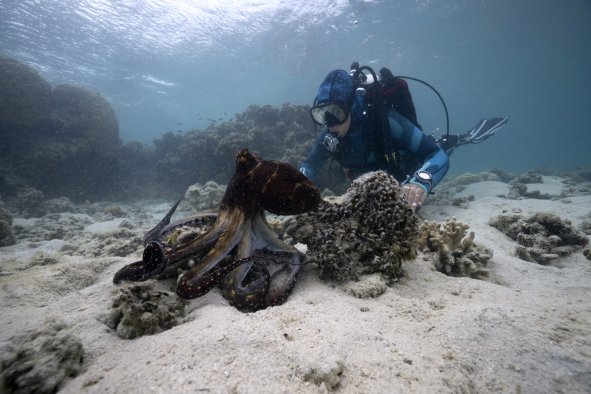The warming of Antarctica's deep waters is hastening sea level rise in the North Atlantic, a new study has found.
The study led by researchers at the University of Miami and the National Oceanic and Atmospheric Administration's Atlantic Oceanographic and Meteorological Laboratory analyzed deep sea data spanning 20 years. The data came from 2.5-mile depths in waters that flow from the southern ocean to the north.
They discovered that a key ocean current system called the Atlantic Meridional Overturning Circulation (AMOC) has weakened by around 12 percent. This is warming deeper waters in the south, which in turn is contributing to sea level rise in the North Atlantic.
The AMOC circulates water in the Atlantic, flowing warm water to the north and cold water to the south. It is vital for keeping the world's oceans balanced in temperature and bringing warmth to colder areas of the globe. It also sustains ocean life. However it is at increased risk of collapse due to climate change, and this new study only adds to this evidence.
Although the Antarctic and North Atlantic are far away from each other, the new findings reinforce that even remote areas are not safe from human impact, the study's lead author Tiago Biló, an assistant scientist at the Rosenstiel School's NOAA Cooperative Institute for Marine and Atmospheric Studies said in a statement.
"Our observational analysis matches what the numerical models have predicted—human activity could potentially impose circulation changes on the entire ocean," Biló said. "This analysis was only possible because of the decades of collective planning and efforts by multiple oceanographic institutions worldwide."
Anything that contributes to rising sea levels is of great concern, as it could eventually see parts of the United States coast completely submerged. The Intergovernmental Panel on Climate Change (IPCC) estimates that there could be between 1.4 and 2.8 feet of sea level rise by the year 2100.
The patch of ocean studied, called the abysmal limb, is part of the AMOC. The abysmal limb is made up of bottom water from the Antarctic, which forms from cooling southern seawater during the winter.
When surrounding sea ice forms, it releases more salt into the water which then sinks to the floor, creating cool water that flows north.
But this flow of cool water is slowing down at a concerning rate. This means there is a lack of cooler water being spread, meaning that the deep ocean waters are warming.
"The areas affected by this warming spans thousands of miles in the north-south and east-west directions between 4,000- and 6,000-meters of depth," William Johns, a co-author and professor of ocean sciences at the Rosenstiel School of the University of Miami, said in a statement.
"As a result, there is a significant increase in the abyssal ocean heat content, contributing to local sea level rise due to the thermal expansion of the water."
The study is published in the April 19 issue of the journal Nature Geoscience.
Do you have a tip on a science story that Newsweek should be covering? Do you have a question about sea level rise? Let us know via science@newsweek.com.
Disclaimer: The copyright of this article belongs to the original author. Reposting this article is solely for the purpose of information dissemination and does not constitute any investment advice. If there is any infringement, please contact us immediately. We will make corrections or deletions as necessary. Thank you.



